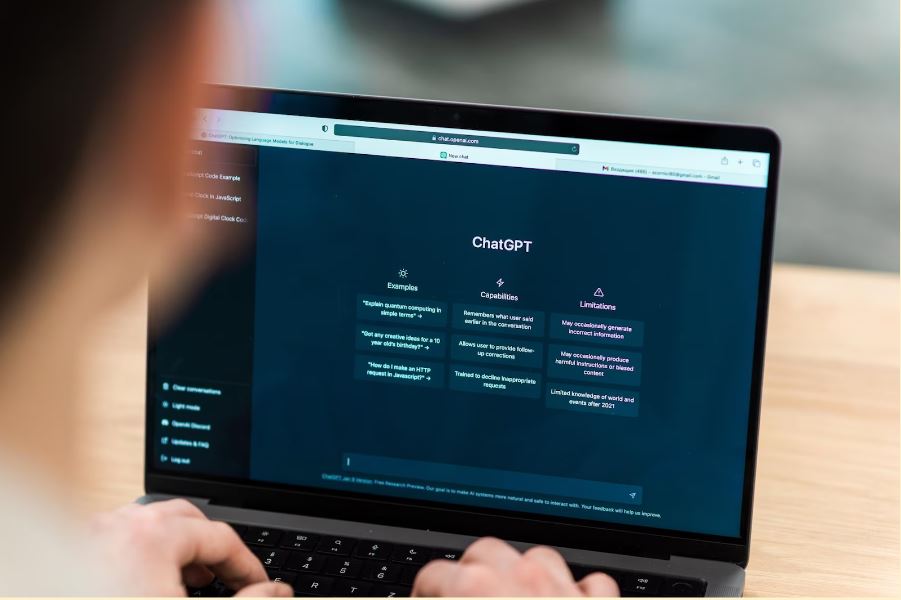Since November 2022, when OpenAI introduced their ChatGPT chatbot, thereby sparking global interest in the technology and igniting an AI arms race, the corporation has been attempting to prohibit other enterprises from utilizing the abbreviation “GPT”. In February 2023, the US Patent and Trademark Office responded with a “no” (again).
ChatGPT is unquestionably the most recognizable product in the artificial intelligence field, having become the most famous conversational model in the industry and the one that most clearly elevated big language models from curiosity to a worldwide trend.
USPTO has denied the trademark stating it’s “merely descriptive”
Nevertheless, in an official decision announced last week, which largely went unnoticed, the USPTO refused OpenAI’s petition to register a trademark for “GPT” since the acronym was “merely descriptive” and simply described a feature or attribute of the organization’s product. “GPT” means “generative pre-trained transformer,” a collection of neural network models capable of producing human-like text and visuals.
Since the emergence of generative AI, several other AI providers have appended GPT to their brand names. For instance, there is an AI detection startup called GPTZero already existing. Other businesses frequently refer to their basic AI models as GPTs and they truly are.
USPTO refused to grant OpenAI the right to the “ChatGPT” and “GPT” trademarks. The United States Patent and Trademark Office (USPTO) made headlines when they declined the trademark application from OpenAI. This event has sparked a heated debate in the tech community, with some backing the USPTO decision, and others criticizing it as a hindrance to innovation.
OpenAI, a well-known AI research lab, has been responsible for the creation of several groundbreaking language models, one of which is GPT-3, which has garnered a lot of attention since it can generate human-like text. OpenAI sought to trademark the names “ChatGPT” and “GPT” to protect their intellectual property, which they would use in their products and services. Nevertheless, the USPTO rejected their applications since the terms were excessively broad and did not have the needed elements to be protected by trademark.
Not the first trademark refusal for Open AI
Open AI first applied for the trademark USA registration with “GPT” in March 2021. However, it was denied in May 2022 because of a procedural mistake. The corporation submitted the request one more time with the requisite fees, but it was similarly rejected in September 2022.
The reaction of the world community
The USPTO’s decision was met with both support and criticism from the tech community. Some experts supported this decision believing that granting trademarks for generic terms like “GPT” will limit competition and innovation in the AI industry. Through refusal to grant OpenAI’s trademark apps the USPTO is sending a strong signal that the generic terms cannot be profited by any particular firm, and this is to the advantage of customers, as it will promote a more competitive market.
At the same time, those who are against this decision pass judgment that it may stagnate technological developments. By refusing OpenAI’s trademark applications, the USPTO takes the step of preventing the company from trademarking its products and distinguishing its brand from its competitors. This could hinder the commercialization of the technology by OpenAI and could serve as a disincentive to other companies to invest in research and development of similar technology.
Moreover, some economists point out that the USPTO’s recent move contradicts the way it has been dealing with the matter in the past. In the past, USPTO has issued trademarks to similar generic terms in the tech sector such as ‘App Store’ and ‘Podcast.’ By denying OpenAI its trademark applications, USPTO is setting a precedent, which might have far-reaching consequences for other businesses seeking to protect their intellectual property.
In the wake of the USPTO’s decision, OpenAI has stated that they will concentrate on other methods to safeguard their intellectual property, including filing for copyright protection or pursuing trade secret protection. On the other hand, the novel approaches certainly provide some level of protection, but not the same level of legal certainty and enforcement abilities as a trademark.
Impact on OpenAI
While OpenAI’s failure to trademark GPT may limit its control over GPT-related terms, the business still has a strong presence in this field. Despite its limited legal safeguards, OpenAI nevertheless has the benefit of being the first to develop the GPT brand. This may encourage the corporation to highlight the GPT branding even more, despite the lack of trademark protection, to strengthen its position as a pioneer in this industry.
The future unwritten: what’s next for “ChatGPT” and “GPT”?
Generally speaking, the USPTO’s denial of the ChatGPT and GPT trademark applications brings up interesting issues concerning the participation of intellectual property protection in the technocrat world. Trademarks are to be focused on promoting innovation and fair competition; the balance between legitimate interests and monopolistic practices is hard but necessary to be struck. The decision of the USPTO in this case emphasizes the difficulties of applying the traditional trademark laws to emerging technologies like artificial intelligence and, at the same time, brings up the issue of intellectual property protection in the digital age that needs a more sophisticated approach.




